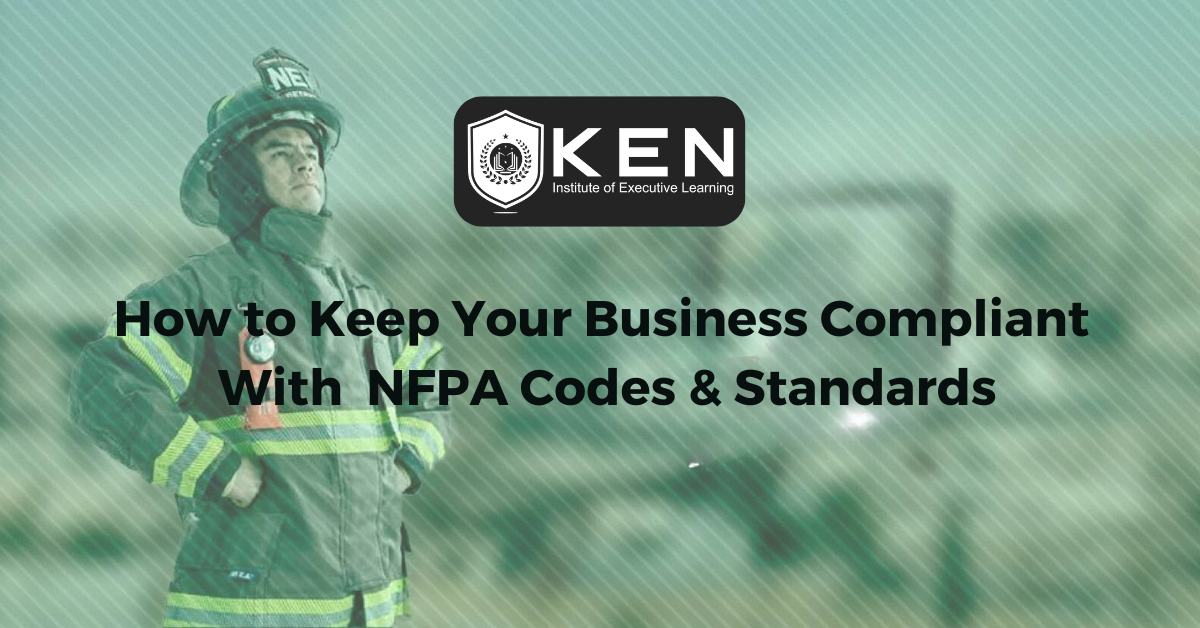
In the realm of business operations, safety and compliance are paramount. “The National Fire Protection Association (NFPA)” plays a crucial role in establishing codes and standards to ensure the safety of individuals and properties. Maintaining compliance with “NFPA Codes and Standards” is a crucial aspect of ensuring the safety and well-being of businesses and their stakeholders.
NFPA and Its Significance
The NFPA is a global authority in fire prevention and safety, developing codes and standards adopted by jurisdictions worldwide. The NFPA establishment was set in 1896 and its current position as a leading advocate for fire prevention and safety, elimination of death, injury, property, and economic loss due to fire, electrical, and related hazards.. The NFPA’s collaborative approach, involves experts, practitioners, and the public in the development of codes and standards for a wide range of industries, including manufacturing, healthcare, and hospitality.
Importance Of Compliance With NFPA Codes And Standards For Businesses.
By understanding the importance of compliance, identifying applicable codes, conducting risk assessments, and establishing comprehensive plans, businesses can navigate the complex landscape of NFPA regulations successfully. Adherence to these standards not only ensures the safety of employees and customers but also protects against legal repercussions and potential financial losses.
The consequences of non-compliance with NFPA Codes and Standards, potentially include legal ramifications, insurance implications, and potential damage to a company’s reputation, illustrating the tangible impact on both safety and financial aspects.
To Identify Applicable NFPA Codes and Standards: Different businesses are subject to different NFPA codes based on their industry and specific operations.
An overview of the most common NFPA codes relevant to different industries:
NFPA 101 (Life Safety Code): Focuses in establishing minimum requirements for the design, operation, and maintenance of buildings to protect occupants from fire and related hazards.
NFPA 70 (National Electrical Code): Emphasizes the importance of electrical safety, covering everything from wiring and equipment installation to the use of electrical systems in hazardous locations.
NFPA 13 (Standard for the Installation of Sprinkler Systems): Specifies the requirements for automatic sprinkler systems, essential for controlling and extinguishing fires.

Conducting a Risk Assessment: NFPA Encourages businesses to conduct a thorough risk assessment to determine which NFPA codes and standards are applicable to their operations. This involves evaluating potential fire hazards, electrical systems, and other safety-related aspects of the business.
NFPA Codes and Standards provide a step-by-step guide on how businesses can conduct a thorough risk assessment:
- Identify potential fire hazards specific to the industry.
- Evaluate the effectiveness of existing fire protection measures.
- Assess the impact of a fire on people, property, and business operations.
- Consider external factors, such as the proximity of emergency services.
Establishing a Compliance Plan: The steps businesses should take to establish a robust compliance plan include assigning responsibility for compliance management, conducting regular audits, and staying updated on the latest NFPA code and standards revisions.

The process of creating a compliance plan:
Assigning Responsibility: Designates individuals or teams responsible for overseeing compliance. This may involve a safety officer or a compliance manager.
Regular Audits: Stress the importance of conducting regular audits to identify and address any deviations from NFPA codes.
Staying Updated: Encourages businesses to subscribe to NFPA newsletters and regularly check for updates. Highlight the significance of attending relevant conferences or workshops.
Employee Training and Awareness: NFPA emphasizes on employee training and awareness programs. Ensure that staff members are well-versed in fire safety protocols, evacuation procedures, and other relevant aspects outlined in NFPA codes.

NFPA elaborates on the necessity of ongoing training programs:
Fire Safety Protocols: Ensure employees understand and follow established fire safety protocols, including the proper use of firefighting equipment.
Evacuation Procedures: Conduct regular drills to familiarize employees with evacuation procedures, meeting points, and emergency exits.
Working with Professionals: For complex compliance issues, recommend businesses to work with fire protection professionals and electrical engineers. These experts can provide guidance on specific code requirements and help implement necessary changes.

Advise businesses to seek professional guidance, especially for complex compliance issues:
Fire Protection Professionals: Recommend working with certified fire protection professionals who can assess current safety measures and suggest improvements.
Electrical Engineers: When dealing with electrical systems, consulting with electrical engineers can ensure compliance with NFPA 70.
Adapting to Revisions: NFPA codes and standards are periodically updated to reflect advancements in safety technology and practices. Businesses must stay vigilant and adapt to these revisions to maintain compliance. Provide tips on how to stay informed about code changes and seamlessly integrate them into existing safety protocols.
Adapting to Code Revisions: Provides guidance on staying abreast of code changes:
Regularly Check for Updates: Stresses the importance of regularly checking the NFPA website for the latest code revisions.

Training Programs: Incorporate ongoing training programs to educate staff about any changes to NFPA codes and standards and how these changes impact daily operations.
Conclusion:
Encourage businesses to view compliance with NFPA codes and standards not just as a regulatory obligation but as an integral part of their commitment to the well-being of their employees and the community. A proactive approach to compliance is not only a legal requirement but also a strategic investment in the longevity and success of the business.
Safety of your people & your business is your first hand priority.
Become a leader in your field! Join Ken Institute and unlock a world of online courses in Occupational Health and Safety, Fire Safety, Environment and Sustainability and Mechanical Engineering.
Get in touch with us at: info@keneducation.in
Visit our website: www.keneducation.in
Call us on +917569034271
Let’s connect together on: Facebook, YouTube, LinkedIn, and Instagram.

